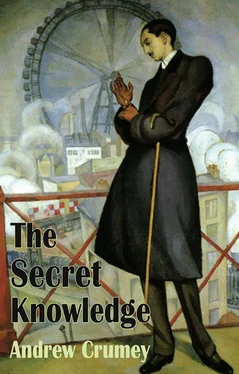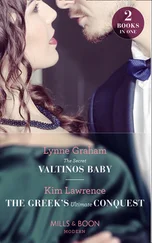She needs air and daylight, goes through the revolving door onto the steps and stands feeling the breeze, breathing deeply until the sickness leaves her. The sound of traffic calms her, movement of distant pedestrians, spectacle of life’s insignificance.
“Hey, Paige.”
She turns and sees in his regular spot the skinny protester with his placard on a pole. Only him today. No hat this time, his brown hair is untidy and he needs a shave but the look suits him. Still can’t remember his name.
“You OK?” he asks.
“Where are the others?”
“Didn’t show.”
She goes over to him, looks at the placard with its painted slogan. “Why do you do this?”
“Because I want change.”
“And you think this can make a difference? Doesn’t change happen anyway?”
He starts telling her the kind of idealistic stuff he must say to everyone, she zones out and watches his teeth, sees a tiny white spot of saliva find its way onto his lip and stay there like a pearl, wonders what it would be like to be kissed by him. Eventually she interrupts. “Aren’t there better places to make a protest than outside a music college?”
“Sure, but I don’t want to miss lectures.”
“Revolution has its limits, right?”
He laughs, she joins in.
“Better go.”
“Bye, Paige.”
The conversation has lifted her mood, she walks home thinking about her meeting, it’ll probably go nowhere but you never know. It isn’t down to Conroy or Mrs White or her mum and dad: it’s about people like Julian Verrine. Again she plays the fantasy of Sean opening the newspaper, a photograph of her at the keyboard.
Next day she arrives promptly at the restaurant, a place she’s never been in, popular with media types by the look of it, stylishly minimalist like a picture in a magazine. The waiter sees her lingering at the entrance and comes to attend; she gives Verrine’s name and is taken to a table already occupied by a slim man in his thirties wearing a light grey suit. He stands and greets her warmly.
“Paige, great to meet you, so glad you could come.”
He has a firm handshake, deep suntan, finely trimmed beard and an expensive looking watch. Later, when Paige tries to describe him, she’ll find that this is all she can say about Julian Verrine.
“How’s the piano playing?” he asks brashly, she tells him she’s studying Chopin and he nods approvingly. “Can’t do better than that. David’s never been too much of a fan, though.” Immediately they have alighted on the subject of their common acquaintance. “Heard anything?”
“My new teacher worries he might have harmed himself.”
“Let’s hope not,” Verrine says earnestly. “It would be so out of character.”
The waiter brings water and offers them a selection of bread rolls, a piece of theatre that puts her in mind of Mrs White’s comments about show business. It occurs to Paige that as a pianist she’s training to be a kind of retail assistant, serving up musical morsels with a flourish. Verrine orders a glass of red wine, Paige sticks to water. She asks him how exactly he knows Conroy.
“We go back a long way.”
“You’re his agent?”
“I’ve helped set up quite a few of his performances. Not an impresario as such, but I have contacts. That’s what it’s all about, you know. Contacts.” His moisturised skin creases easily into a smile as he raises his glass to toast their new partnership. “Now, tell me about Klauer.”
The sudden change of topic takes her aback. “What about him?”
“You still have the piece?”
“I gave my copy back to Mr Conroy. He told you about it?”
Verrine cuts into his roll, disembowels it and pushes some of the white fluff into his mouth, scrutinising Paige who for a moment sees his eyes flick to her breasts before he takes a sip from his glass to wash down the bread. “Did you play all of it?”
“Only the slow movement.”
“Odd case from what I hear. Shot himself and survived, something like that.”
“I wouldn’t know.”
The waiter comes again, the next stage of the performance, inviting them to order. They haven’t looked at their menus; Verrine glances at his and opts for steak, Paige finds her attention falling more on the prices than the elaborate descriptions, hopes she hasn’t misinterpreted the arrangement, and orders a risotto involving morel mushrooms and pine kernels. She has no idea where such things come from or how they’re harvested, they seem to exist only for places like this.
“Chopin, eh?” Verrine resumes. “Poor fellow’s buried all over the place, heart’s in Warsaw and the rest of him’s in Paris, though it’s what he wanted, apparently. Know about his eyes?”
“Where are they buried?”
“Paris, I presume. But no one knows what colour they were. Liszt wrote that they were blue, others swore they were brown, some say hazel. Rotted away to dust now, so we’ll never find out.” It’s a sad and distasteful image but Verrine doesn’t notice Paige’s reaction or else doesn’t care, instead he pursues the thought. “So many things we can never know, because they make no difference. The colour of a man’s eyes, even if he’s alive or dead.”
“You mean Mr Conroy?”
“I meant Klauer. Dead now anyway, regardless of how things went. History doesn’t care either way.”
“Not necessarily.”
Verrine looks pleased to have elicited some resistance. “Are you going to tell me about the butterfly effect? Tiny details changing the course of history? I don’t believe that nonsense.”
“You’re a fatalist?”
“No, I believe we can all make a difference. I just don’t waste my time on details.”
“I’m guessing you don’t play an instrument.”
He laughs. “ Touché . You’re right, I could never have been a performer. But I’ve helped launch a few careers.”
The waiter has reappeared, this time to replace redundant cutlery that had already been on the table when they arrived, with implements deemed appropriate to their order. Details, Paige thinks. Maybe Verrine’s right, we waste too much time on ones that make no difference.
“I want to know more about the Klauer piece,” Verrine says.
“You already know more than I do.”
“But you’ve played some of it, you know how it sounds. What did David say about it?”
“Didn’t he tell you?”
“I want to hear it from you.” Verrine’s look is momentarily steely, Paige can imagine him as boss of some big company, calmly firing an employee after years of faithful service, and again his eyes move to her breasts though this time they stay there a little longer. She doesn’t dislike his attention, instead she feels herself drawing power from it, and almost without thinking, she flexes her back, a movement that swats his gaze like a fly.
“The Klauer’s an interesting work,” she says confidently.
“Romantic or modernist?”
“Hard to say.”
“If it was a film soundtrack, what sort of film would it be?”
This is hard too; Paige thinks of the slow movement and tries to imagine the actors it would accompany, but all she can see is an empty landscape, remote forest or wetland, somewhere beautiful yet bleak. “Arty,” she says.
“I was afraid you might say that. No chance of making that your concert debut, then.”
“I already told you, I don’t have the score.”
“Oh yes, that’s right,” Verrine reminds himself. “But would you be able to play any of it from memory if you had to?”
“Why might I have to?”
“I was simply wondering.”
Their meal arrives; the risotto is a little tit-shaped mound that looks like a starter. Fortunately Paige isn’t hungry, Verrine’s manner has somehow taken away her appetite. He slashes his bloody steak with enthusiasm. She says, “You mentioned on the phone about possibilities. Performances.”
Читать дальше











